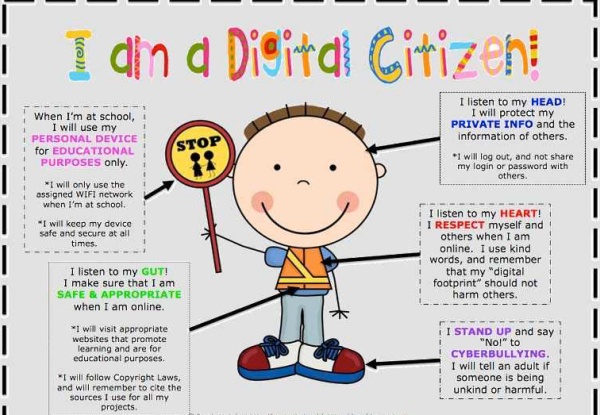We anticipate that information technology experts will continue to increase fast across all fields of human activity by 2020, according to our projections. Modern digital environments need the possession of more than a fundamental understanding of computer technology. To create technology in a skilled and beneficial manner, resources such as education, labor, creativity, and communication must be made available. Individuals and organizations must accept personal responsibility for their actions in this new era of mass communication, while also showing respect for the rights and privacy of others.

Modern children already possess a lot of technically sophisticated digital skills even when they have just come to school. They know how to use the Internet from a very young age, which makes them sometimes even more developed, than teachers may expect. From using custom writing platforms, like Pro-Papers to knowing how to hack different sites, children have examined the way modern technology works quite efficiently.
However, using technology not only for personal interests but also for education is a little different. And, in addition to this, there is a new technological field starting these days. And here comes digital citizenship.
Digital Citizenship in Schools
WHAT IT IS?
The term “digital citizenship” is used to describe this competency, which is becoming more crucial in the educational process. It was in 2019 that the Council of Europe’s Education Department developed a Guide to Education on Digital Citizenship, which has three sections: “Staying Online,” “Welfare Online,” and “Online Rights.” The purpose of this guide is to organize, structure, and promote materials on digital citizenship. Personal growth, educational and civic worth are all highlighted by each of these examples of digital citizenship.
WHY DO WE NEED IT?
An incr technology, knowledge-intensive and internaeasingtional world requires us to ensure that our kids are prepared for success. Our graduates must be able to adapt to a rapidly changing environment and modify their professional careers accordingly. Regardless of the new challenges, they encounter in their working lives, they want to succeed.
As a result of technological advancements, kids now have access to a global network of scientists and educators. Social networks, no matter how much we despise them, cannot be ignored by students anymore. These networks must be actively influenced by the school. There is a need for new information, skills, abilities, and social behavior as a result of the coming changes. Responsibility and ethics must be applied to the usage of new digital instruments.
WHAT SHOULD BE TAUGHT?

Students learn how to be effective digital citizens from their professors, who play a crucial role in putting administrative structure principles into action and teaching them how to do so. Many themes, such as digital literacy, responsibility, health preservation, and Internet safety, need a unique approach to be taken to be successful. A systematic approach to digital citizen education, which involves accomplishing the goals set in a school’s curriculum, is the only way to make significant strides towards achieving meaningful progress. Teachers must stay on top of the always-changing and updated digital material to ensure that students can use it comfortably and readily in the classroom.
HOW TO IMPLEMENT IT?

The process of implementation of such a complex approach is quite hard, even though you may have all the necessary equipment. The conditions that will boost success depend not only on the educational establishment but also on every single pupil.
- Availability
Access to annexes and networks of the Internet is the first step toward the ability to practice digital navigation. Such access is already a factor, but for other reasons, it is not practical. Before the outbreak of an epidemic of coronavirus that ravaged public schools, a large portion of kids were characterized by their position about Internet access.
- Digital gap
A basic lack of digital literacy, as well as the inability to personalize devices and environments to match the specific demands of individual users, are additional contributing factors to the digital literacy gap.
- Personalization and uniqueness
It is vital to use digital technology for learning, personal development, and creative and meaningful self-expression, rather than just for its own sake, and to do so in a way that is both meaningful and effective. Through the use of information websites, e-mail or video conferencing, social networking groups, and mass online courses, individuals and businesses may improve their personal and professional capacities.
One’s digital identity is formed and maintained when one participates in the digital community. Our online reputation and e-presence are based on the volume and quality of personal information we make public. You must be able to communicate utilizing a wide range of channels and technologies, even as those channels and technologies change over time.
- Critical thinking
Digital media interpretation and critical assessment are both more important now than ever before, because of the increasing reliance on digital media. These skills include the capacity to ask questions and the ability to engage effectively with knowledge in a variety of forms and formats. The citizen of the digital age needs these abilities to make educated decisions, and they are vitally crucial.
- The ethics
The vast world of digital technology enables you to effortlessly go from one social group to another, which needs you to traverse accepted standards, adhere to ethical conduct, and identify and comprehend the sentiments, emotions, and perspectives of others. Especially in online debates about sensitive matters, it is easy to forget that each of us has the right to securely express our ideas with respect for the perspective of another.
As a result, it is very difficult to separate technical knowledge from civic and social capabilities in these fields. Social sciences, law, basic health, and other disciplines with a communication component are all included since students need to learn about the contemporary features of these fields, which have been impacted by digitalization.
Students and their families need to be involved in conversations about these issues, rather than just passively receiving information about these issues. A lot of these topics should be explored by educators and students since the judgments and conclusions reached here affect everyone involved in the educational process.
